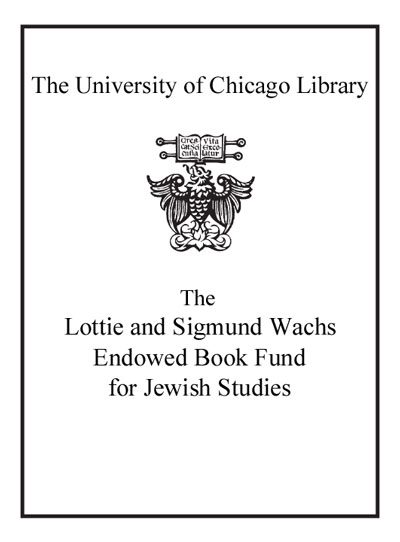Review by Booklist Review
Jerusalem evokes strong theological, cultural, and political divisions, East vs, West Jerusalem, the Old City vs. the New, Palestinian vs. Israeli. Nineteenth-century British Protestants concocted the idea of Armenian, Christian, Jewish, and Muslim quarters, imposing their colonialist categories on a city they did not understand. Yet, as journalist Teller demonstrates in this delightfully readable history, "[t]o reduce Jerusalem to two sides, or four quarters, and then give them equal resources would be terribly misleading about the limitless complexity of this city." Teller is most interested in the people behind the politics, and he interviewed many who express varying degrees of hope or fatalism among the craftsman, map-sellers, bakers, juice merchants, and hummus chefs servicing tourists along the Via Dolorosa; the ancient Jewish Karaite community and the Domba Gypsies; tattooed Coptic Christians and meditative Sufis. He also considers the centuries old "Status Quo" preserving a delicate power balance between Christian denominations at the Church of the Holy Sepulchre. Part history, part walking tour, Teller's portrait of Jerusalem is essentially a series of interconnected stories in an interconnected city of infinite global significance.
From Booklist, Copyright (c) American Library Association. Used with permission.
Review by Publisher's Weekly Review
British journalist Teller (Quite Alone) comes up short in his effort "to address the imbalance in stories--or narratives, or ideas--that exist about Jerusalem." Contending that "Palestinian lives and voices have been too often excluded," Teller explores the cultural diversity of Jerusalem with an emphasis on the stories of the "unlistened-to." He details the prosaic lives of Palestinian individuals and flavors their stories with colorful details, such as when he chronicles the history of the "most famous" hummus shop in the city and describes the founder's process of mashing chickpeas by hand. The author probes cultural frictions and biases, relating the story of a Dom woman who, after enduring a childhood marked by discrimination, founded a nonprofit to provide social services to the Dom community, descendants of the itinerant Domba people of India who settled around the Middle East. Discussions of Jerusalem's history and geography, as well as the arbitrary imperial division of the city into four quarters, are competent but unlikely to surprise those familiar with the basic outline of the city's past. Additionally, incomplete accounts of the 1948 war and the annexation of East Jerusalem in 1967, as well as baroque phrasing (the partition of British Palestine in 1947 is labeled "that geriatric tantrum from the 1930s rebranded as the two-state solution") drag this down. Readers interested in a more nuanced look at Jerusalem will be better served by Simon Sebag Montefiore's Jerusalem. (Sept.)
(c) Copyright PWxyz, LLC. All rights reserved
Review by Kirkus Book Review
A vigorous tour of Jerusalem in all its complexity. In the three monotheist traditions, Jerusalem is a dreamlike place "of heavenly perfection, our city of joy"; it is also a distinctly physical entity that has endured enormous fracturing over the centuries. BBC journalist and travel writer Teller describes the lives of many of the city's inhabitants as he attempts to reveal its contemporary essence. He ably investigates a crucial dichotomy: the "physical Jerusalem and [the] moral, spiritual one; an old, corrupted message and a new, clear one." For ages, he writes, "it didn't matter that the city had no river, no strategic value and no natural sources of commercial wealth. It had God." Though accepted as the way it has always been, the division of the city into four quarters--Christian, Muslim, Armenian, and Jewish--actually occurred fairly arbitrarily in the mid-19th century thanks to British Protestant missionaries. Moving back and forth in time, Teller uses as a frame of reference the sequence of walls and gates implemented by Suleiman the Magnificent in the 16th century, taking readers through the labyrinthine neighborhoods that have grown up around those gates. The author chronicles his in-depth conversations with a wide, diverse swath of the population: Sufi mystics and religious figures of all kinds, of course, but also Palestinian, Indian, African, and Jewish shopkeepers; members of the Dom community ("socially, politically and economically these people are at the bottom of every heap"); and even "quadrilingual" Armenian rock star Apo Sahagian, who grew up in the Old City. Since the Six-Day War of 1967, citizen displacement has been widespread, and while Teller doesn't delve deeply into this animus, the epilogue explores Palestinian restrictions and the toll of Partition. Overall, the author delivers an illuminating reexamination of an enduring city, a book that makes a satisfying complement to Andrew Lawler's Under Jerusalem. A deft, engaging portrait of a teeming, shape-shifting city. Copyright (c) Kirkus Reviews, used with permission.
Copyright (c) Kirkus Reviews, used with permission.
Review by Booklist Review
Review by Publisher's Weekly Review
Review by Kirkus Book Review

